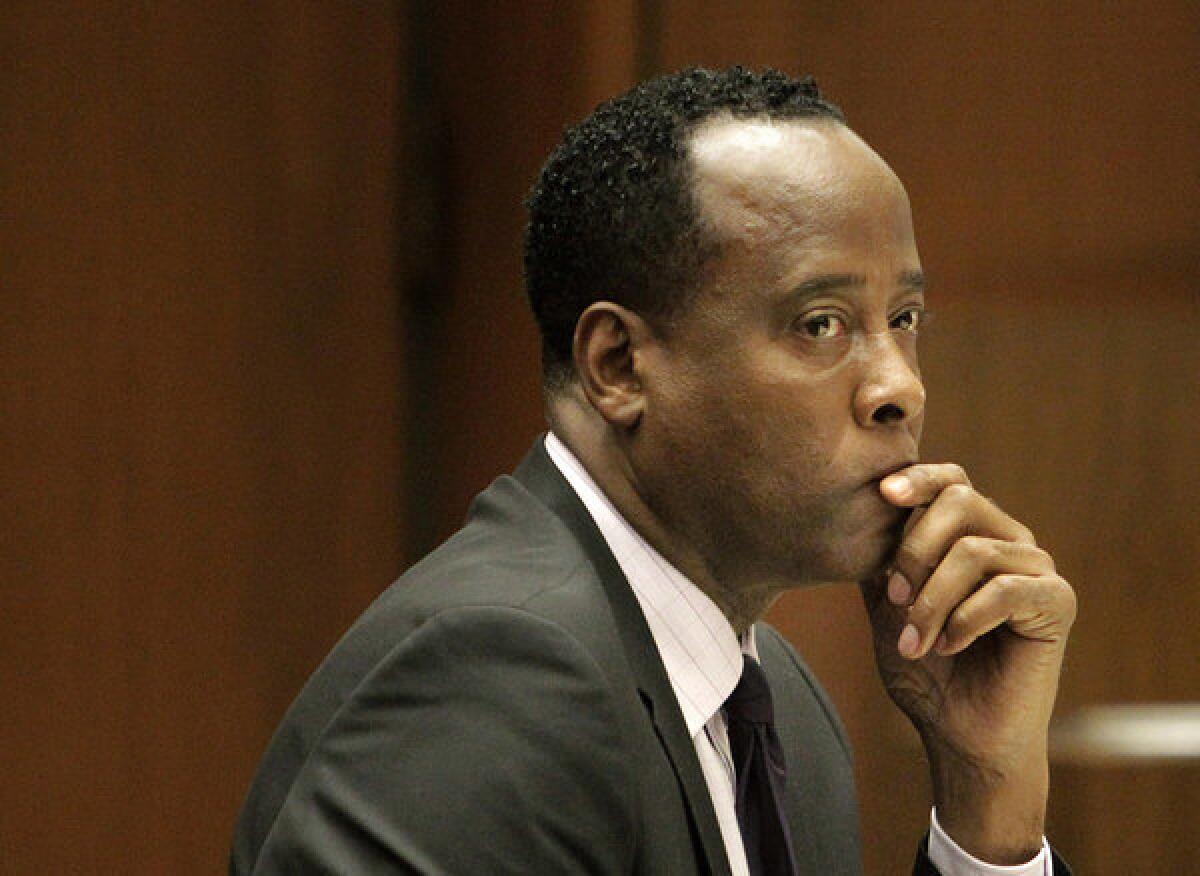Jackson trial: AEG missed the warning signs

Michael Jackson’s doctor showed warning signs that should have led concert promoter AEG to raise serious questions before letting him sign on as the singer’s physician for an anticipated comeback tour, a cardiologist testified Tuesday.
Dr. Daniel Wohlgelernter, who practices in Santa Monica and who has taught at Yale and UCLA medical schools, spent Tuesday as an expert witness testifying on behalf of Jackson’s mother and three children, who have filed a wrongful death suit against AEG, the entertainment company that promoted Jackson’s 50 London concerts.
Wohlgelernter said the fact that Dr. Conrad Murray, a cardiologist, shut his practice to care only for Jackson, who had no history of heart problems, “that to me is a red flag,” Wohlgelernter said. He asked why Murray would “leave what he was doing for a patient who doesn’t need his services?”
The witness also said that Murray’s request for a CPR machine, written into his contract, a device used when patients undergo heart surgery, should have raised questions.
“What is this doctor planning to do?” Wohlgelernter asked. “What are his treatment plans in taking care of Michael Jackson?”
Another warning, he said, was Jackson’s request for Murray, considering the singer’s background with drug use.
“It’s a red flag to the extent that Michael Jackson has a history of substance abuse and addiction that he specifically is requesting a given doctor who has no training in any of those areas.… What is the nature of this relationship? Why do these two want each other?”
The Jackson’s legal team called Wohlgelernter to the stand to show that not only was Murray unfit to serve as the singer’s doctor, but that AEG executives should have picked up on the danger signs.
The Jacksons claim that AEG negligently hired and supervised Murray, who gave Jackson a fatal dose of the anesthetic propofol at the singer’s rented Holmby Hills home. The Jacksons say that Murray, who was deeply in debt, would do almost anything to keep the job that was supposed to pay him $150,000 a month.
AEG maintains that Murray worked for Jackson and had treated him since 2006, and that company payments to the doctor were actually part of an advance that Jackson would have to repay.
Wohlgelernter also said he was troubled by a section of Murray’s contract that said the doctor was to “Perform the Services reasonably requested by the Producer,” which was AEG.
That meant Murray was “responsible and accountable to a third party, namely AEG Live,” Wohlgelernter said, not his patient, leading to a conflict of interest.
The expert witness said only anesthesiologists administer propofol because the patient can stop breathing. He said he had never heard of the anesthetic being used at home or to treat insomnia, as Murray had.
Asked if he had ever administered propfol, Wohlgelernter replied, “Not nowhere, not nohow.
The cardiologist said he is paid $4,250 for half a day of expert testimony and $450 an hour to prepare for testifying.
ALSO:
3.5 quake strikes near Ventura
Limo fire: Death toll ‘beyond words,’ CHP official says
Record $2.25-billion fine urged in deadly San Bruno blast
More to Read
Sign up for Essential California
The most important California stories and recommendations in your inbox every morning.
You may occasionally receive promotional content from the Los Angeles Times.









